|
|
|
|
 |
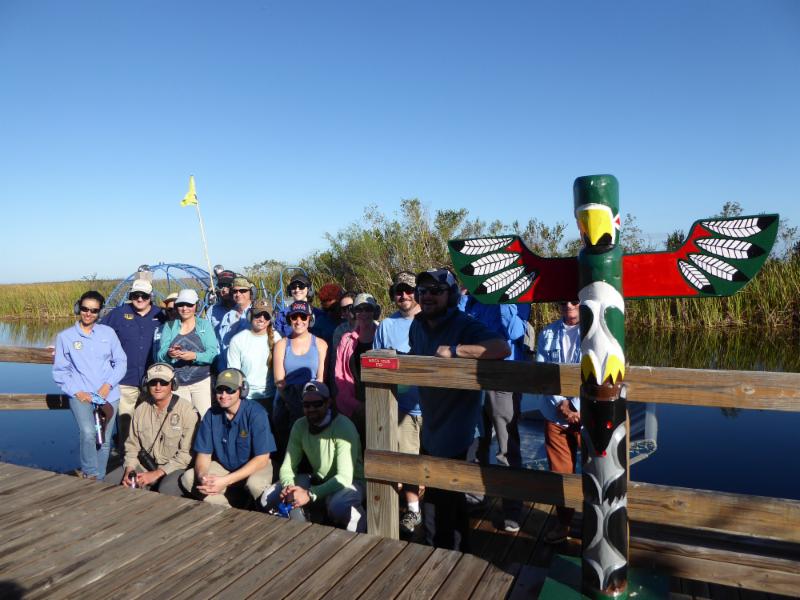
Class XVII Fellows getting ready to depart for an airboat tour with Johnny Tigertail.
Photo by Wendy-Lin Bartels.
|
|
| Class XVII Session 6
Everglades Restoration
Session 6 was held near Clewiston, Florida at Billie Swamp Safari located on the Big Cypress Seminole Indian Reservation. The session topic focused on Everglades Restoration, and Fellows learned about perspectives from local community members and government agency representatives.
Robert Sobczak, a Hydrologist with the National Park Service, Big Cypress National Preserve, provided an overview talk which challenged conventional knowledge and assumptions, such as a long-held "watershed myth" of Big Cypress Swamp. His presentation boasted dragons and cathedrals, metaphors to underscore his call for a new paradigm in which "everything is connected"-- previous maps and rain-driven narratives may be wrong.
Rev. Houston R. Cypress, Otter Clan, Miccosukee Tribe of Indians of Florida; Co-Founder, Love the Everglades Movement; NRLI alumnus, Class XVI, followed with an equally captivating presentation on the importance of history. He noted that, many times, we forget the spiritual and cultural significance of this place -- The Everglades. He highlighted "traditional ecological knowledge" and his organization's use of a "holistic perspective" that sets different boundaries for space and time, which is viewed as cyclical vs. linear. He described protocols and songs that call on the healing properties of plants for traditional medicines. He also mentioned how the outreach work of his organization encourages people to "Give the water the respect it deserves."
For the field trip, the group went on an airboat tour with Johnny Tigertail Tours. This tour afforded Fellows the opportunity to visit a tree island. Many have heard of these islands which dot the Everglades, but few people have the chance to walk on the islands and hear stories of the significance of these places and how they are passed on from generation to generation.
For this session, individuals who joined us for the stakeholder discussion to share experiences and perspectives on Everglades restoration were:
- Wes Seitz, Public Hunting Areas Biologist, South Region, Game Management & Public Hunting Section, Division of Hunting & Game Management, Florida Fish & Wildlife Conservation Commission
- Gary Ritter, Assistant Director of Government & Community Affairs, Florida Farm Bureau Federation; Councilman for City of Okeechobee
- Kelly Keefe, Restoration Biologist, Planner, U.S. Army Corps of Engineers
- M. Kent Loftin, P.E., P.H., C.G.C. Hydrologist, Watershed Management Section, Environmental Resource Management Department, Seminole Tribe of Florida
The Project Team would like to thank James Erskine, FWC Everglades Coordinator; NRLI Alumnus, Class XIV, for all of the time and effort he put into helping us plan and organize this session. It was an impactful and successful session, and we couldn't have done it without you, James!
|
|
|
|
|
|
|
Each month, we ask a pair of Fellows to review the session in their own words. This article describes reflections from the point of view of Fellows Kevin Morris & Katie Britt
|
Fellows' Article
Tree Islands & Balloons in the River of Grass
By Kevin Morris & Katie Britt
This session continued the theme of Florida Everglades Restoration. Lisa and Kevin returned this session but we are missing Mary, who has moved on to exciting new career challenges. The home for this session was Billie Camp Safari, a 2,200 acre site that serves as both a Seminole Tribe cultural learning center as well as a tourist venue. This remote location was far from sources of light pollution and the new moon and clear weather combined to afford great views of the night sky.
This Western Everglades session had a very unique feel to it. In other sessions where we traveled to areas to experience a resource conflict, we stayed in hotels or cabins but this time we were more fully integrated with nature. We were on the waters of the Big Cypress Indian Reservation and slept with the sounds of frogs and gators in Chickees built by Seminole Indians. Without running water or electricity (less distractions), it created a medium receptive for us to think more deeply about why we were here. Several fellows commented on how quickly you adapted to natural background noises and as you drifted off towards unconsciousness the sounds which would bring you back to wakefulness were the sounds of people, not wildlife.
On Wednesday, Bob's presentation led us down the "dragon's path" teaching us that to fully understand Big Cypress we must first understand preindustrial hydrologic linkages between surface and groundwater across the region. A former NRLI alum, Rev. Houston Cypress, a member of the Miccosukee tribe, shared with fellows a glimpse of the complex perspective Native Americans have in dealing with non-tribal entities and the Everglades. The tribes' history, culture and past interactions with the federal government have created an underlying atmosphere of distrust, suspicion and skepticism amongst many Native Americans. They are extremely protective of their culture, lands and quality of life and see the Miccosukee's spiritual and emotional livelihood being on the cusp of destruction. It would be foolish to ignore these existing powerful frames of understanding.
Thursday started early but the trip to and from the airboat ride allowed fellows to explore the vastness of the Everglades and then reflect on the invaluable experience provided by Tigertail Airboats. Johnny Tigertail led us on a visit into the Miccosukee Tribal Lands through the river of grass in Water Conservation Area 3A. We saw several of the tree islands including one that his family owns and learned that Native Americans have used tree islands going back 1,500 years. The tree islands used to play host to more diverse flora and fauna but over recent decades man's impact on hydrology has resulted in extended periods of flooding that have killed off large trees, eroded islands and significantly impacted species diversity. A somewhat sad, but ironic twist during this trip to learn about modern society's impact on these natural areas, was the need to pause and collect brightly colored mylar Valentine's Day balloons presumably released in Miami/Dade County that had drifted down as trash into this sacred plush area of green and sparkling waters.
|
|
| Johnny Tigertail's familial Tree Island, several of the relic sewing machines belonged to his grandmother. |
We finished Thursday back at camp joined by a 4-member stakeholder panel representing 75 years of combined experience in the region. The 90 minute session flew by quickly and many fellows later remarked afterwards about how little of the time was spent discussing the technical and engineering aspects of Everglades restoration implementation. Rather, the discussion focused on the importance of relationship building, messaging consistency and effective outreach approaches. Many fellows came away with important takeaways that they will use in their lives and professional careers, but one quote that seems to summarize the session and the panel was "They won't care what you know, until they know that you care."
As always, the packed session agenda left our minds reeling with valuable new information, insights and useful approaches to apply in our own work. The overriding theme was that while communication is important, a critical part of that process is the need to consider powerful frame(s) through which different people look at same issues. Often these frames stem from inherent biases and power that we may not even be aware of. Lastly, we left this session reflective of the short amount of time remaining in the program, the upcoming graduation ceremony, and grateful for another opportunity to spend time with our NRLI fellows, deepening the bonds of friendship within our NRLI class.
Postscript: During Day 1 of this session, a horrible school shooting tragedy happened at Marjory Stoneman Douglas High School in Broward County that left 17 dead. The remote location of the camp and limited communications precluded NRLI class members from understanding early details and precluded giving family members a much needed hug of love and reassurance. Marjory Stoneman Douglas is often regarded as the Mother of the Everglades for her fierce determined fight to recognize the ecological treasure of the Everglades and the need to preserve it. But she also was a fierce defender of children and families and for such a tragedy to befall her namesake institution should create a clarion call for change to make schools safer for our children.
|
|
Spotlight on Class XVII Fellows
Caroline Gorga
Species & Habitat Monitoring Coordinator
Florida Fish and Wildlife Conservation Commission
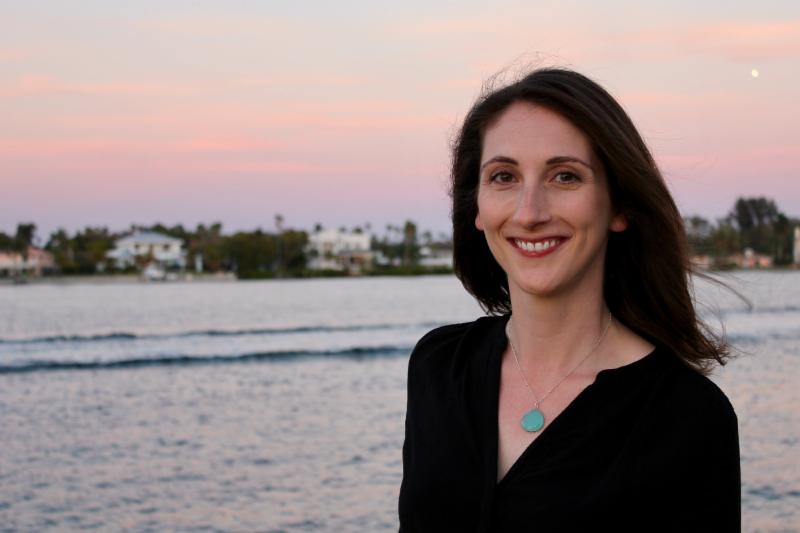
Car
oline Gorga is the Species and Habitat Monitoring Coordinator for the Florida Fish & Wildlife Conservation Commission's Wildlife Legacy Initiative program. She has worked with the Legacy Initiative since 2012 as a Wildlife Legacy Biologist, focusing on filling information needs for Florida's Species of Greatest Conservation Need. Her current position addresses the program's responsibility to determine whether and how the projects funded have a lasting impact on fish and wildlife and the habitats they occupy. In this role, Caroline works with FWC's species and habitat biologists and partners to identify, prioritize and address monitoring needs and focus on increasing the communication, coordination and collaboration to address these needs.
Michael Lusk
Refuge Manager
Okefenokee National Wildlife Refuge, U.S. Fish & Wildlife Service
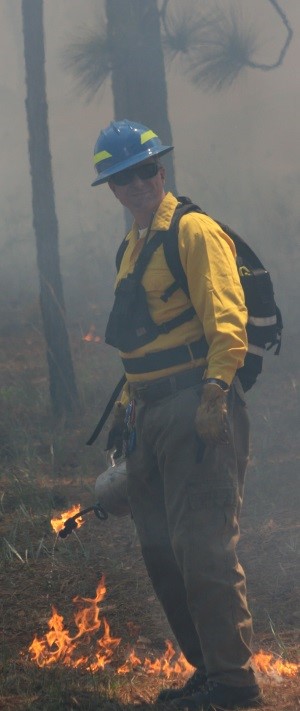 Michael Lusk is a 25 year veteran of the U.S. Fish and Wildlife Service (FWS). Born in Florida, he grew up in eastern North Carolina and received his BS and MS in Fish and Wildlife Biology, with a minor in Forestry, from NC State University. He is a certified Wildlife Biologist by The Wildlife Society. After graduation, he served as a wildlife biologist working with the endangered red-cockaded woodpecker at Fort Bragg, NC. It is here he first gained insight into managing southern pine forests for fuel reduction to prevent wildfires while restoring the longleaf pine ecosystem. He then moved overseas for a two year stint as a contract wildlife biologist for the Commonwealth of the Northern Mariana Islands. There he worked with highly endangered endemic birds in a tropical rainforest ecosystem. Michael then joined the FWS as an endangered species recovery biologist in Honolulu, HI. He left Ecological Services to join the National Wildlife Refuge System (NWRS) and took a job as an Assistant Manager at Bond Swamp National Wildlife Refuge in central Georgia. Following that, he traveled to the southern border of Arizona where he was Deputy Project Leader at the Cabeza Prieta National Wildlife Refuge. Having learned about the damage that invasive species can do to native ecosystems from his time in the Pacific Islands, Michael moved to FWS Headquarters in Washington D.C. as the Invasive Species Coordinator for the NWRS. Michael returned to the field to take the Refuge Manager position for the Crystal River NWR Complex in central Florida where he worked with the endangered Florida manatee. At this station he was heavily involved in partnering with local communities to manage a controversial wildlife resource. Michael then moved to south Georgia in 2013 to become the Refuge Manager of Okefenokee NWR. At the Okefenokee, with its history of large wildfires, he has been able to combine his past experiences with longleaf pine forest management, endangered species biology, and partnering with local communities to advance the principals found in the National Cohesive Wildland Fire Management Strategy, including Resilient Landscapes and Fire Adapted Communities. Over the years Michael has authored several peer reviewed articles for scientific journals and co-authored a field handbook on managing fire and invasive species. Michael Lusk is a 25 year veteran of the U.S. Fish and Wildlife Service (FWS). Born in Florida, he grew up in eastern North Carolina and received his BS and MS in Fish and Wildlife Biology, with a minor in Forestry, from NC State University. He is a certified Wildlife Biologist by The Wildlife Society. After graduation, he served as a wildlife biologist working with the endangered red-cockaded woodpecker at Fort Bragg, NC. It is here he first gained insight into managing southern pine forests for fuel reduction to prevent wildfires while restoring the longleaf pine ecosystem. He then moved overseas for a two year stint as a contract wildlife biologist for the Commonwealth of the Northern Mariana Islands. There he worked with highly endangered endemic birds in a tropical rainforest ecosystem. Michael then joined the FWS as an endangered species recovery biologist in Honolulu, HI. He left Ecological Services to join the National Wildlife Refuge System (NWRS) and took a job as an Assistant Manager at Bond Swamp National Wildlife Refuge in central Georgia. Following that, he traveled to the southern border of Arizona where he was Deputy Project Leader at the Cabeza Prieta National Wildlife Refuge. Having learned about the damage that invasive species can do to native ecosystems from his time in the Pacific Islands, Michael moved to FWS Headquarters in Washington D.C. as the Invasive Species Coordinator for the NWRS. Michael returned to the field to take the Refuge Manager position for the Crystal River NWR Complex in central Florida where he worked with the endangered Florida manatee. At this station he was heavily involved in partnering with local communities to manage a controversial wildlife resource. Michael then moved to south Georgia in 2013 to become the Refuge Manager of Okefenokee NWR. At the Okefenokee, with its history of large wildfires, he has been able to combine his past experiences with longleaf pine forest management, endangered species biology, and partnering with local communities to advance the principals found in the National Cohesive Wildland Fire Management Strategy, including Resilient Landscapes and Fire Adapted Communities. Over the years Michael has authored several peer reviewed articles for scientific journals and co-authored a field handbook on managing fire and invasive species.
Graham Williams
Land Manager
St. Johns River Water Management District
Graham 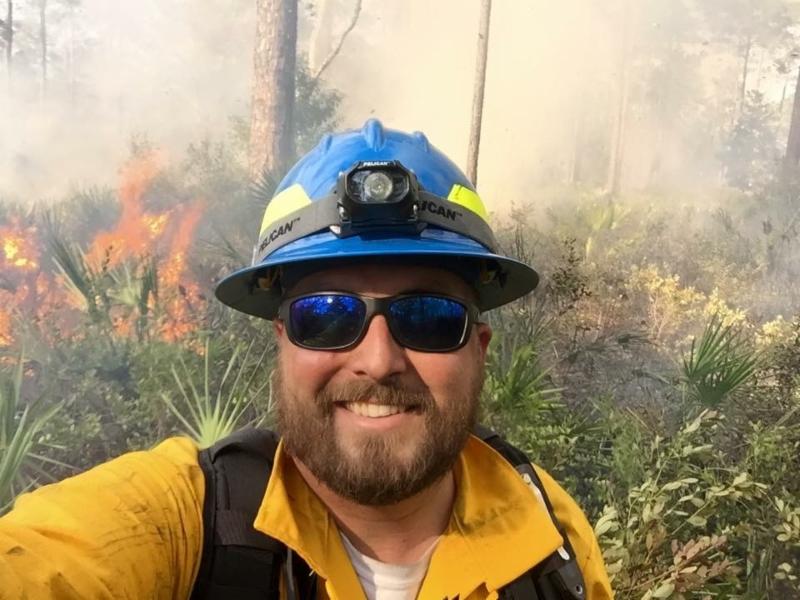 Williams is a Land Manager with the St. Johns River Water Management District at the Geneva Field Station. He is responsible for the management of 10 conservation areas totaling over 80,000 acres in Orange, Seminole, Brevard, and Volusia Counties where he is charged with balancing public access and recreation with natural resource management activities. Keeping fire on the landscape is a top priority and Graham regularly employs prescribed burning as an important management tool. Williams is a Land Manager with the St. Johns River Water Management District at the Geneva Field Station. He is responsible for the management of 10 conservation areas totaling over 80,000 acres in Orange, Seminole, Brevard, and Volusia Counties where he is charged with balancing public access and recreation with natural resource management activities. Keeping fire on the landscape is a top priority and Graham regularly employs prescribed burning as an important management tool.
Prior to becoming a Land Manager, Graham spent time with the SJRWMD as a Land Management Specialist, with the Florida Park Service as an Environmental Specialist II, and with the Seminole County Natural Lands Program. He attended the University of Central Florida where he earned BS and MS degrees in Biology.
Graham has been intrigued by nature from the first time he scooped up tadpoles in a dip net. He grew up fishing, hiking, canoeing, and playing in the outdoors of central Florida and always tried to learn everything he could about the flora, fauna, and ecosystems around him. He considers himself to be a naturalist but is especially knowledgeable of amphibians, reptiles, and birds. He is active in several non-profit groups including the Florida Native Plant Society, Florida Ornithological Society, Florida Audubon Society, and the Nova Scotia Bird Society.
Graham's wife, Sherry is also a biologist and the two share their home with their dog, Quiggly and the plethora of birds, butterflies, and other wildlife that call their backyard native plant garden home. Graham inspired his younger brother, Ande, and father, Mark, to both become Park Rangers with the Florida Park Service where they work at Wekiwa Springs and De Leon Springs State Parks (respectively).
Lisa Aley
Planning Technical Lead, Restoration Section
U.S. Army Corps of Engineers
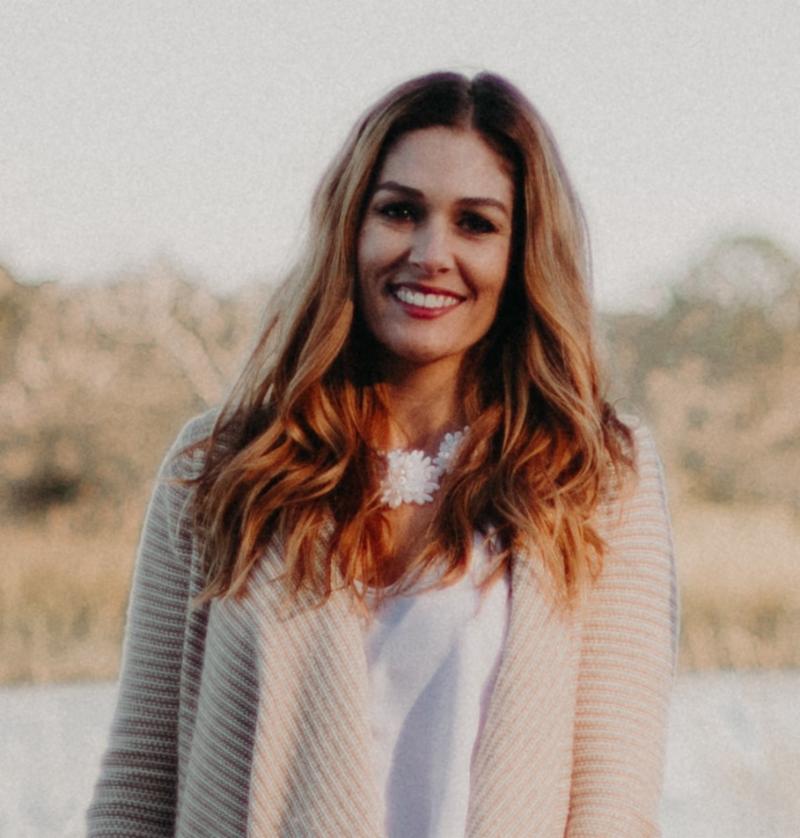 Lisa Aley has spent the majority of her scholastic and professional career in California. She went to college at Cal Poly San Luis Obispo and studied Earth Sciences and Environmental Engineering. She was a wedding floral designer to pay her way through school and her first professional job was a field geologist in Central California working on delineating soils and groundwater at Leaking Underground Fuel Tank (LUFT) sites. Since 2008 she has worked for the U.S. Army Corps of Engineers (Corps) as an environmental engineer both in Sacramento, CA and in Jacksonville, FL. She has worked on the environmental side of the Corps preparing National Environmental Policy Act (NEPA) documentation for projects at the Folsom Dam, including a Dam Raise project and a Water Control Manual Update. Since transferring to the Jacksonville District, Lisa has worked on beach nourishment projects, environmental restoration and flood control projects in Puerto Rico, and is currently focusing on Everglades Restoration projects. Lisa lives in Jacksonville Beach, Florida with her husband, son, and 2 dogs and spends her free time fixing up her old beach house. Lisa Aley has spent the majority of her scholastic and professional career in California. She went to college at Cal Poly San Luis Obispo and studied Earth Sciences and Environmental Engineering. She was a wedding floral designer to pay her way through school and her first professional job was a field geologist in Central California working on delineating soils and groundwater at Leaking Underground Fuel Tank (LUFT) sites. Since 2008 she has worked for the U.S. Army Corps of Engineers (Corps) as an environmental engineer both in Sacramento, CA and in Jacksonville, FL. She has worked on the environmental side of the Corps preparing National Environmental Policy Act (NEPA) documentation for projects at the Folsom Dam, including a Dam Raise project and a Water Control Manual Update. Since transferring to the Jacksonville District, Lisa has worked on beach nourishment projects, environmental restoration and flood control projects in Puerto Rico, and is currently focusing on Everglades Restoration projects. Lisa lives in Jacksonville Beach, Florida with her husband, son, and 2 dogs and spends her free time fixing up her old beach house.
|
|
REMINDER
You're Invited!
NRLI Class XVII Graduation
Dear NRLI alumni and friends of the NRLI program,
You and your guest/family are cordially invited to attend the graduation ceremony of Class XVII of the
Florida Natural Resources Leadership Institute
to be held
Friday, April 20, 2018 from 5:30 to 9:00 p.m.
at
The Wooly
20 North Main Street
Gainesville, Florida
Reception: 5:30 to 6:30 p.m.
Dinner: 6:30 to 7:30 p.m.
Remarks & presentation of awards & certificates: 7:30 to 9:00 p.m.
*Please RSVP no later than April 5.*
|
|
Giving to NRLI: The General Joe Joyce Family Endowment for Natural Resources Leadership
Would you like to support NRLI? Did you know that NRLI has three endowment funds--the Bruce Delaney Scholarship Fund, the General Joe Joyce Family Endowment for Natural Resources Leadership, and the Farm Credit of Florida Agricultural and Natural Resources Leadership Endowment that you can contribute to?
Dr. Joyce was born in Jacksonville, Florida in 1948. He attended Paxon High School in Jacksonville, obtained his BS and MS degrees at the University of Alabama where he was co-captain of the track team and was three-time letterman in track and cross country. He obtained his PhD from the University of Florida in 1982 in Forest Resources Management. His first professional experience began in 1972 with the US Army Corps of Engineers, Jacksonville District. The highlight of his career with the Corps was leading a successful effort to better manage the invasive water hyacinth in waters of the State of Florida. Many of the programs that Dr. Joyce helped establish are still in effect today.
In 1983, Dr. Joyce joined the UF/IFAS faculty as the Director of the Center for Aquatic and Invasive Plants. He has also served UF/IFAS as the Director of the Center for Natural Resources, as Interim Dean for Research, and the Interim Vice President. He served as the Senior Associate Vice President for over 20 years and currently serves as the Director of the IFAS Center for Leadership. He also had a 32-year career in the US Army Reserves where he has held numerous command and staff positions and is a graduate of the US Army War College. He retired as a Brigadier General in 2004. He is married to Pamela Joyce Tyler, has two sons, Dr. Joseph C. Joyce, Jr. (DDS) and Lt. Colonel Christopher Tyler Joyce (USAF) and five grandsons.
In 2015, Dr. Joyce retired after more than 20 years as the UF/IFAS Senior Associate Vice President. Dr. Joyce is continuing his leadership by creating an endowment to support the NRLI. This endowment will provide partial scholarship support to NRLI participants as well as offer general support to the program.
|
|
|
|